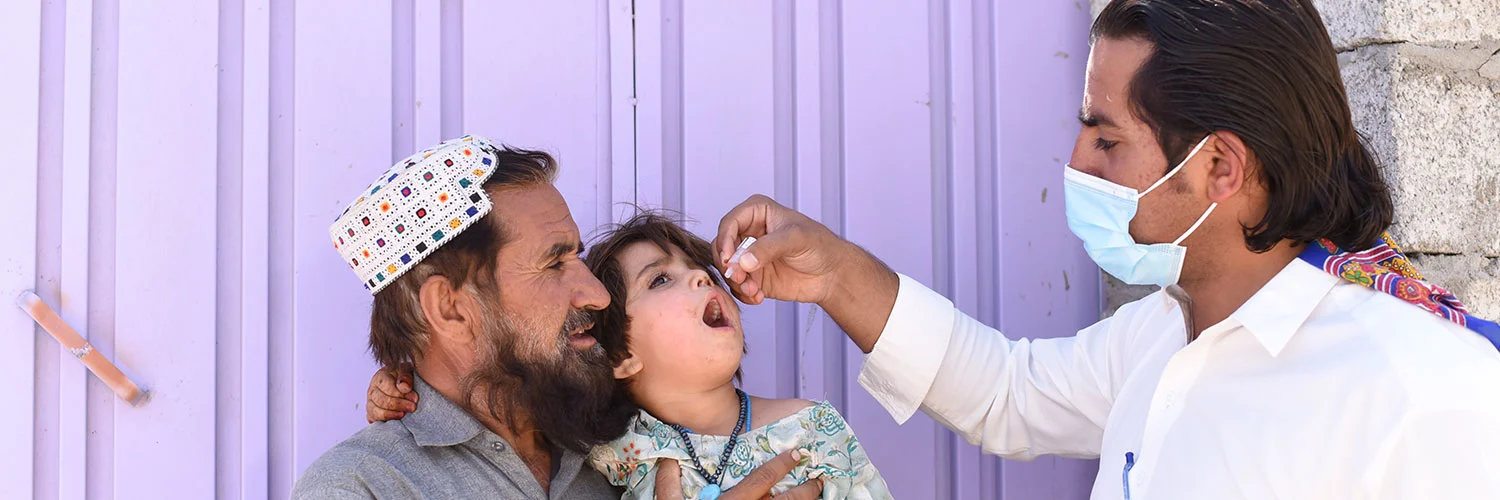Islamabad: March 26, 2015 - The draft National Emergency Action Plan for Polio Eradication 2015 was deliberated at length in a high level meeting held at the National Emergency Operations Centre, Islamabad. “The distance between us and Polio eradication is only that of 6-7% children which are consistently missed” stated Senator Ayesha Raza Farooq, Prime Minister’s Focal Person for Polio Eradication while chairing this important consultation. Highlighting the significance of strengthening routine immunization, Senator Ayesha termed it a sad reality that our children were suffering from diseases easily preventable through timely administration of effective vaccines. Referring to the paradigm shift by the programme from ‘covered’ to the ‘missed’ children’; she highlighted the need of ensuring adequate preparedness and a focus on campaign quality over quantity.
The meeting was attended by Khawaja Salman Rafiq, Advisor to Chief Minister on Health, Provincial health secretaries, EPI managers as well as representatives from the G.H.Q and partner agencies including UNICEF, WHO, BMGF and Rotary International.
Presenting framework of the NEAP 2015, Dr. Rana Muhammad Safdar, Coordinator of the National EOC shared strategies aimed at maintaining and increasing population immunity against polio all across, stopping virus transmission in all reservoirs and detecting, containing and eliminating the virus in newly infected areas and finally sustaining polio interruption through increased routine immunization coverage. The time bound objectives and measurable targets for each strategy were also shared for consideration by the participants. The document also provides flexibility to local Polio teams for exercising tailored solution to the area specific problems particularly to overcome the security challenges.
Appreciating the endeavor by the National EOC, Khawaja Salman Rafiq suggested consideration of R.Y Khan, D.G.Khan and Rajanpur as high risk districts due to on-going circulation in north Sindh and Balochistan, increased migrant and mobile population movement from high risk areas and low EPI coverage compared to other part of the Punjab. Introduction of IPV in Punjab and surveillance of environmental samples from RY Khan was also recommended by him.
Frequent campaigns compromise quality of polio campaigns said Dr. Noor Baloch, Secretary Health Balochistan. Supported shift of focus on the quality campaign instead of quantity, he also emphasized on convergence between routine immunization and polio eradication program. Mr. Muhamamd Mushtaq Jadoon, Secretary Health KP highlighted the special security concerns of his province and also stressed tracking of missed children and vaccinating them during each campaign. Dr. Mazhar Khamisani, Manager EP Sindh also shared the efforts of provincial Government to tackle northern Sindh outbreak. He shared that the non-availability of required security in Karachi was the cause of staggered campaigns.
Dr. Sahibzada Khalid, Deputy Director, EPI – FATA thanked security agencies for adequately supporting Polio campaigns in highest risk areas of FATA. The vulnerable TDP children were being offered OPV and IPV. To address specific needs of FATA, he suggested establishment of additional fixed sites both for Polio vaccination as well as enhancing Routine Immunization. He further recommended linking Independent monitoring results directly with accountability through structures outlined in NEAP.
Brig. Tariq Mehmood, GHQ focal person on Polio, while speaking at the meeting, shared with the participants that ground realities should be taken care of while making micro plans. He suggested the programme to focus on area security rather than spot security and reiterated support of the Armed Forces for this national endeavour.
Having focus on measurable outcomes, the NEAP 2015 emphasizes coordinated planning and implementation of operations, security and communications; use of community volunteers, training and support to the polio workers as well as building effective synergy between EPI and Polio program. Verification of quality before, during and after the campaign through an independent third party and linkage of results with rewards and accountability is seen as primary measure to interrupt Polio virus transmission in the shortest possible time.
Representatives of partner organizations speaking on the occasion, appreciated the commitment being exhibited by the senior leadership of the federal and provincial Governments. Reiterating their support, partners saw the emerging cohesiveness among stakeholders as a guarantee for programme's success in near future.

